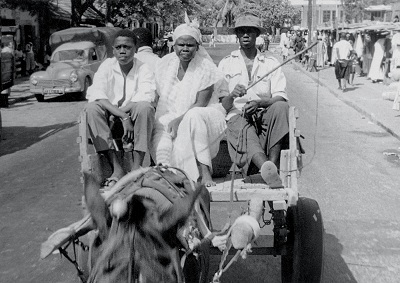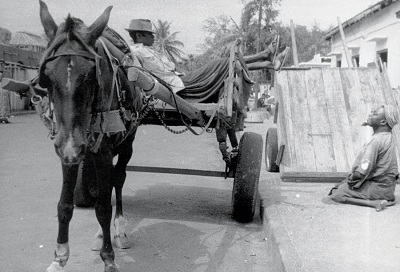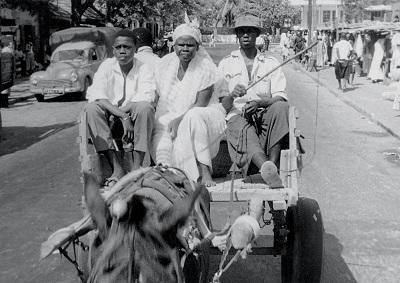It’s impossible to pack an entire region’s cultural ambitions into a handful of screenings, but as the wide range of films scheduled in Caméras d’Afrique: The Films of West Africa makes evident—a handful goes a long way. It’s produced in partnership with Loyola Marymount University’s School of Film and Television, Film Independent, and LACMA, and runs Tuesdays and Thursdays throughout the month of October through October 28 (with free Monday-night screenings on the LMU campus). And, if my hopes are fulfilled, the gorgeously rendered works of art will stimulate audience interests and passions.
My goal with this series is to help Angelenos understand that one of the most combustible collaborations occurs when a new technology—cinema—is added to one of the planet’s oldest narrative traditions: that of Africa’s, whose storytelling history long outstrips that of Europe’s and the Americas'. Though West Africa may not have an investment in film that goes back to the silent era of movies, the use of silence by the directors in this series is still powerful and telling. The films scheduled include two seminal movies from the region: Senegal’s Ousmane Sembene’s tough-minded feature debut, 1963’s Borom Sarret (thought to be the first film about black Africans to be directed by a black African), is the story of a poor wanderer learning about himself as he puts together a living, and 1967’s Soleil O, by Mauritanian director Med Hondo, which is a meta-examination of the exploited—he uses all of the powers of the medium to spell out the awakening of the black laborer in amused—and bemused—terms.
 Still from Borom Sarrett
Still from Borom Sarrett
 Still from Borom Sarrett
Still from Borom Sarrett
Among the offerings, director Ferid Boughedir’s 1984 documentary Caméra d’Afrique (which informed the name of this series) is a survey that encompasses 20 years of filmmaking in Africa. Boughedir’s work takes the viewer from the 1960s through to the 1980s; it’s a perfect piece for the series—he studies West African film with a curatorial eye as well as an artistic perspective. By covering a large number of films from the entire continent, Boughedir is able to follow the shift in subject matter from colonial threat to smaller-scale stories that still contain epic emotional range. And from the brutally satirical 1990 film Le Damier to Alain Gomis’s sweet and meditative 2012 drama, Tey, the series itself touches on just as many forms of cinematic expression—and mastery of filmmaking.
Caméras d’Afrique: The Films of West Africa consistently and compellingly exposes us to the joys of the medium from a part of the world whose filmic arts are woefully underexposed to us.
Elvis Mitchell, Film Independent at LACMA Curator



